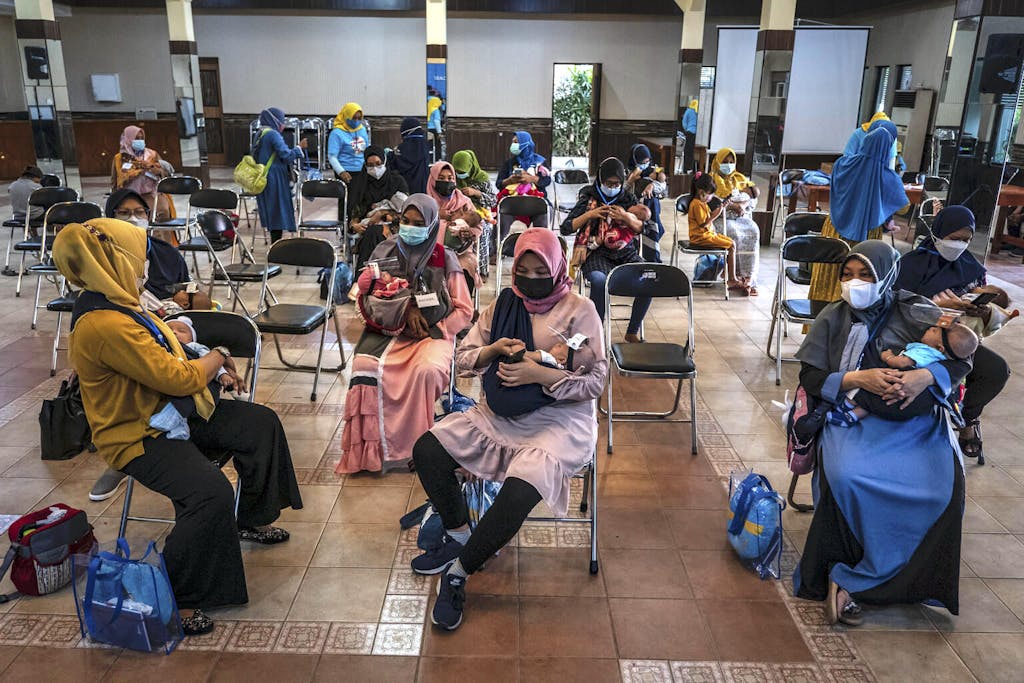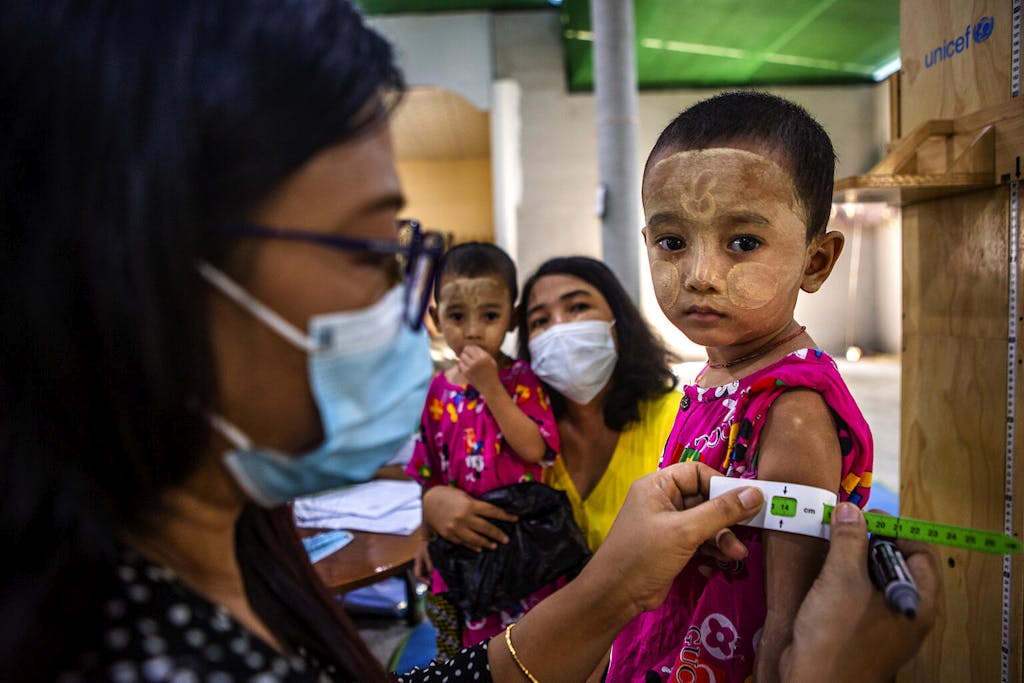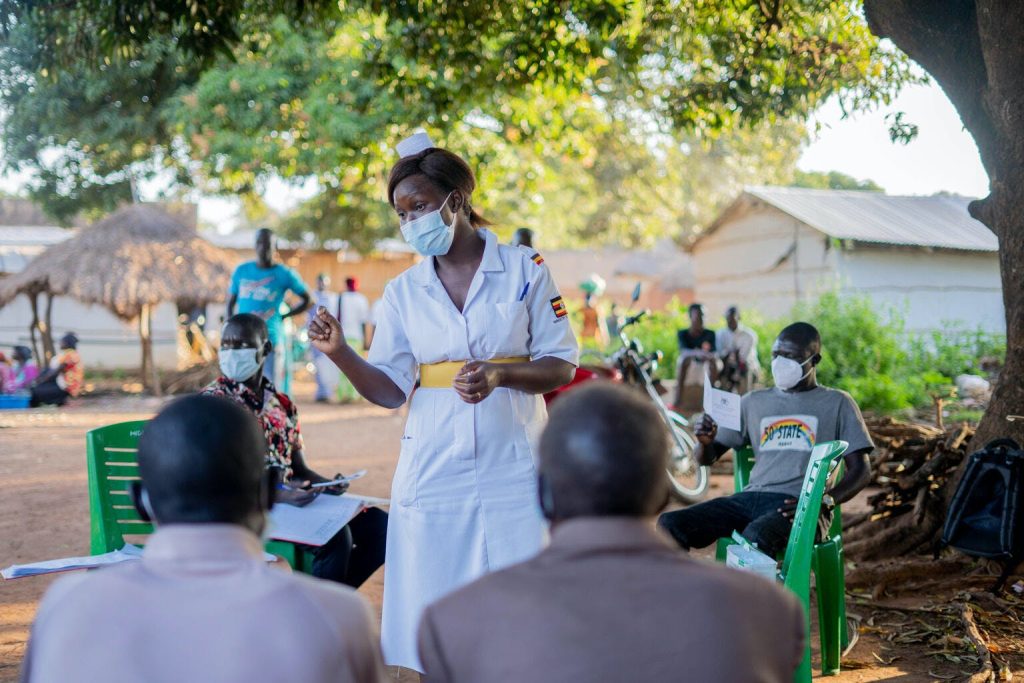
Assistant Nursing Officer Judith Candiru hosts an information session on COVID-19 vaccines at Midigo well being center IV in Uganda. picture: Zahara Abdul / UNICEF
to make constructive that that nobody is left behind, major well being care should be equitable, resilient, and ready to meeting everyone’s wants. common well being safety Day is acknowledged to encourage movement in direction of this formidable but attainable purpose. furthermore it is an alternative to have fun and replicate on the progress that has been made globally to increase entry to UHC. Not solely is UHC the moral and equitable path forward in strengthening worldwide well being, however it’s additionally the best funding we’re ready to make to rearrange for the following pandemic.
common well being safety is a Prerequisite for Pandemic Preparedness
think about a world the place all of us, whether or not or not they stay in bustling cities, distant villages, or anyplace in between, have entry to extreme-extreme quality, reasonably priced well being care providers. on this actuality, major well being care is localized, sustainably financed, gender-responsive, and resilient in stopping and responding to rising well being threats. common well being Care (UHC) Day 2021, which might be noticed Dec. 12, is an alternative to rally throughout the purpose of attaining well being look in spite of the whole lot by 2030. The day would possibly additionally mark the two-12 months anniversary of the start of the COVID-19 pandemic. Over that time, the world has mobilized in unprecedented methods. nonetheless, as reported deaths as a outcome of of COVID-19 climb to 5.three million and circumstances proceed to rise exponentially amid the unfold of extremely transmissible new variants corresponding to Omicron, it’s develop to be more and more evident that to cease the unfold anyplace, we should cease the unfold all by means of the place. This begins with making sure that common well being care is prioritized by political leaders in major well being care packages.

mothers await his or her youngsters to be immunized with the pneumococcal vaccine at an event in Gresik, Indonesia. picture: Ulet Ifansasti / UNICEF
The COVID-19 pandemic and responses to the pandemic have positioned an infinite burden on, and highlighted, the vital function of major well being care packages. major well being care suppliers have been on the forefront of lowering COVID-19 transmission, administering vaccines, and fostering group engagement on masks carrying and utterly different public well being measures. on the identical time, major well being packages have been answerable for mitigating the extreme disruptions to important providers, corresponding to routine immunizations for polio, measles, and utterly different lethal communicable illnesses. sadly, the success of these packages is terribly uneven and their resilience is proven to closely correlate with ranges of funding, political dedication, and nation income diploma. information from the World well being group (WHO) displays the pandemic particularly affected well being providers in low-income international areas, with forty five% of nations reporting disruptions in at the least seventy five% of important providers in might and June 2020. collectively with making sure equitable entry to vaccines, strengthening major care packages the world over will assist finish the current pandemic and forestall the following one.
The road to UHC
beforehand 20 years, many international areas have expanded entry to and safety of well being providers, with notable enhancements in monetary safety. In 2019, on the 74th UN fundamental meeting, world leaders unanimously dedicated to attaining UHC by 2030. This declaration reaffirmed the significance of political management in stewarding complete-of-authorities and complete-of-society approaches and outlined key targets important to understand UHC by 2030.
in the present day, as a outcome of the world grapples to handle the COVID-19 pandemic, the case for UHC has develop to be extra pressing. in the course of the particular Session of the World well being meeting from Nov. 29 to Dec. 1, a quantity of Member States reiterated the significance of complete-of-society and One well being approaches in making ready and stopping future pandemics. particularly, a coalition of pandemic treaty proponents, named the Group of mates of the Treaty, referred to as for the inclusion of UHC elements inside the treaty negotiations. furthermore, interventions from nonstate actors collectively with Gavi, The Vaccine Alliance, the Joint United Nations Programme on HIV/AIDS (UNAIDS), the worldwide Federation of pink Cross and pink Crescent Societies (IFRC), and the World financial institution emphasised the want for a mannequin new instrument that addresses strengthening prolonged-time period commitments for major well being care. These nonstate actors, as effectively as to Civil Society Organizations (CSOs) and private sector companions, will proceed to be integral in serving to Member States push the UHC 2030 agenda forward. whereas the form and content material of a treaty or accord for pandemic preparedness and response are unknown, the potential of enshrining UHC ideas in such an instrument is an superb acknowledgment of the function of UHC in pandemic preparedness and response.

Mg Thu Wai Htut is measured with a MUAC tape to test for malnutrition at Dagon Seikkan ward group hall in Myanmar. picture: Nyan Zay Htet / UNICEF
Actions communicate a lot louder than phrases on UHC.
whereas there might even be worldwide assist for accelerating efforts to attain common well being care by 2030, nationwide actions for attaining it are nonetheless fragmented. Many international areas have set nationwide targets, but vital gaps stay between implementation and outcomes. to hint worldwide progress on UHC, UHC2030, a world partnership of governments, worldwide organizations, worldwide well being initiatives, philanthropic foundations, civil society organizations, and private sector companions, launched its State of UHC dedication 2021 consider. The consider highlights that although many international areas have made key commitments to meet the targets for UHC, solely 36% of collaborating international areas have operationalized these commitments into on-the-floor movement. In response to the pandemic, many international areas inflated their well being budgets, nonetheless, sustaining important well being providers have been deprioritized. as a outcome of the pandemic continues to push tens of millions of of us into poverty, reasonably priced entry to major well being providers should be maintained to maintain away from further backsliding on well being inequities and forestall further monetary hardship. The report notes that solely six of the forty five collaborating international areas have made commitments to deal with gender equity in well being and political management, regardless that women comprise 70% of the worldwide well being care workforce. general progress on UHC should be accelerated to confront the well being disaster that we face proper now and utterly different of us inside the not-too-distant future.
The case for UHC is plain, not solely in upholding the relevant of every particular person to have reasonably priced therapies and providers for noncommunicable illnesses, sexual and reproductive well being, and psychological well being, however additionally in stopping future and ongoing well being threats. As a precondition for the social, financial, and environmental dimensions of the Sustainable development goals, well being is everyone’s enterprise and the implications of enterprise as typical are too good to not act. We should maintain leaders accountable to their political commitments if we’re to attain UHC by 2030.

